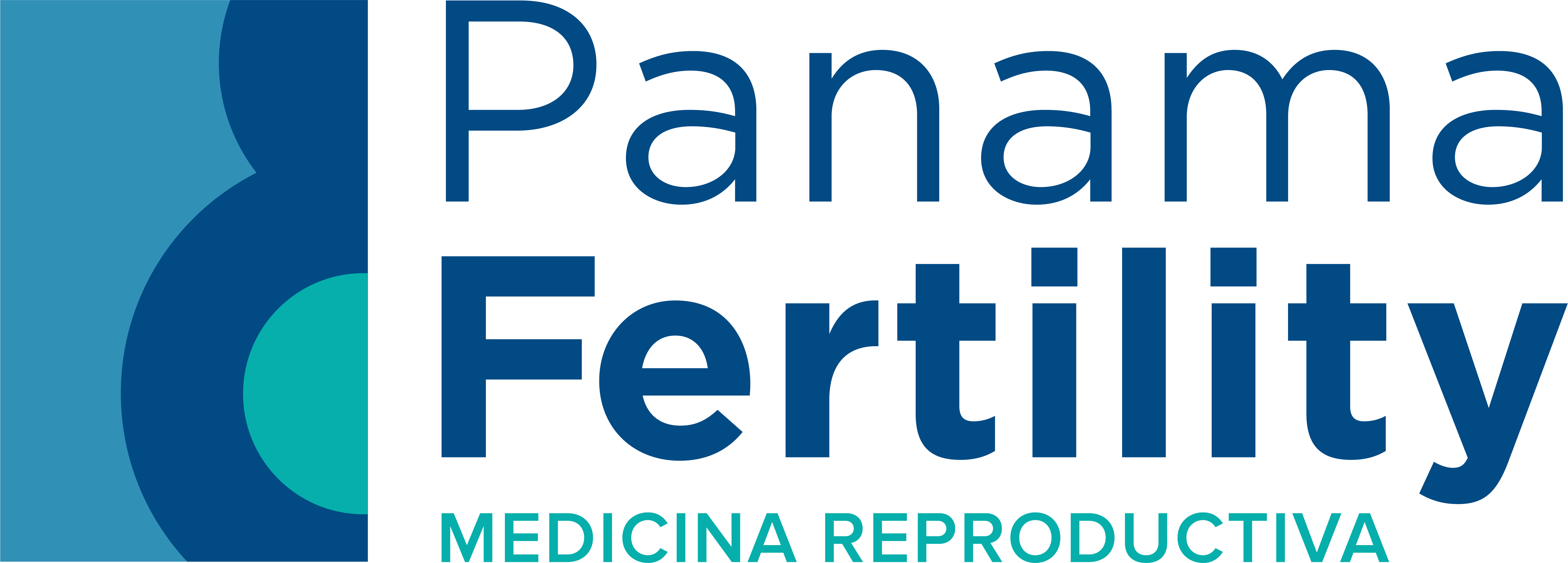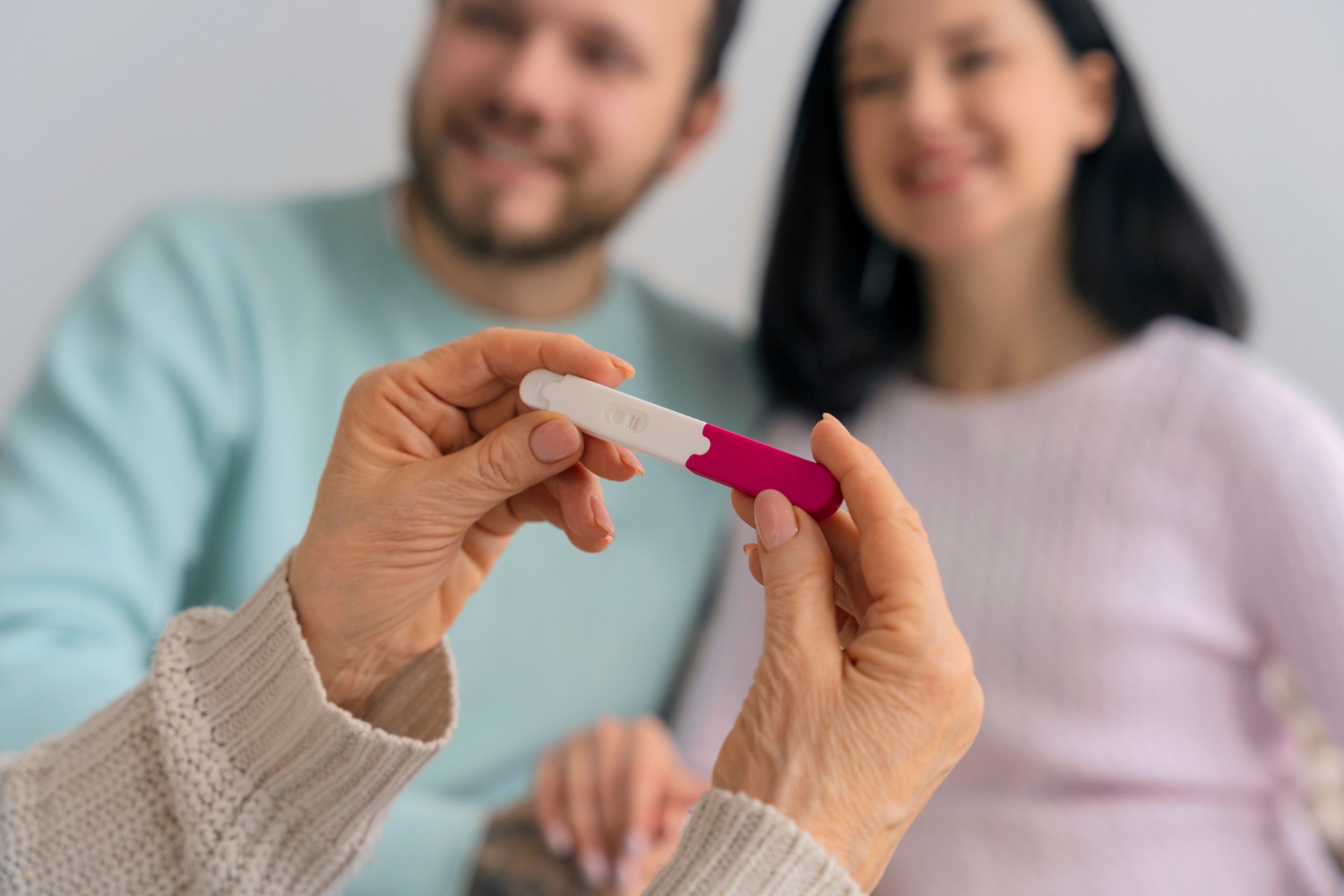How Hormones Affect Your Ability To Get Pregnant
For most women, no hormonal treatment is necessary to get pregnant. They just need to make sure that they are in good health and will achieve conception. In these cases, a healthy and varied diet is the easiest way to balance hormones. For the other 15% of women who have difficulty conceiving or Female Infertility, they may be prescribed hormone pills that regulate their endocrine system and thus achieve pregnancy. In cases that require Assisted Reproduction treatments, hormonal medications that are administered by injection instead of pills may be prescribed. In most cases where hormonal medication is required, the goal is to stimulate the ovaries (follicle growth) or to regulate ovulation.
It is very important that you know that it is never advisable to take hormones to achieve pregnancy, whether in the form of pills or any other medication, unless they have been prescribed by a sub-specialist in Fertility and are taken under medical supervision.
It is very important that you know that it is never advisable to take hormones to achieve pregnancy, whether in the form of pills or any other medication, unless they have been prescribed by a sub-specialist in Fertility and are taken under medical supervision.
A natural way to balance hormones and achieve pregnancy
The body’s natural hormonal balance and fluctuating levels of hormones that regulate the menstrual cycle are essential for conception and carrying a pregnancy to term. This natural balance can be broken in a process that is usually gradual over many years. This alteration can be the result of a poor diet, being overweight or very underweight, environmental pollutants or even high levels of stress, it can damage your hormonal balance and, as a result, reduce your chances of achieving pregnancy in different ways:
• A poor diet that is rich in processed foods and low in whole foods, fresh fruits, and vegetables can lead to hormonal imbalance. Part of the problem is that many food preservatives contain xenohormones that have the ability to disrupt the endocrine system that manages the overall hormonal balance. Weight control has a great impact on the hormonal balance of the body. Women who are very underweight are at risk of infertility due to missing periods, indicating a lack of ovulation. Overweight women, on the other hand, can have unusually high estrogen levels that can also contribute to infertility. For men, obesity can increase the likelihood of low testosterone and poor sperm quality.
• Environmental pollutants like adhesives and solvents, pesticides, herbicides, and meat that has been treated with high levels of hormones can upset the hormonal balance because they are also sources of xenohormones.
• High levels of stress increase stress hormones such as cortisol, which inhibits gonadotropin-releasing hormone (GnRH), which is the body’s main sex hormone, and as a result, ovulation, sperm count, and blood pressure can be suppressed. libido.
If you can control these areas of your life and avoid the most obvious pollutants, in addition to taking other lifestyle measures such as not smoking, avoiding drugs and excessive alcohol consumption, you will be well on your way to balancing your hormone levels and thus increasing your chances of pregnancy.
• A poor diet that is rich in processed foods and low in whole foods, fresh fruits, and vegetables can lead to hormonal imbalance. Part of the problem is that many food preservatives contain xenohormones that have the ability to disrupt the endocrine system that manages the overall hormonal balance. Weight control has a great impact on the hormonal balance of the body. Women who are very underweight are at risk of infertility due to missing periods, indicating a lack of ovulation. Overweight women, on the other hand, can have unusually high estrogen levels that can also contribute to infertility. For men, obesity can increase the likelihood of low testosterone and poor sperm quality.
• Environmental pollutants like adhesives and solvents, pesticides, herbicides, and meat that has been treated with high levels of hormones can upset the hormonal balance because they are also sources of xenohormones.
• High levels of stress increase stress hormones such as cortisol, which inhibits gonadotropin-releasing hormone (GnRH), which is the body’s main sex hormone, and as a result, ovulation, sperm count, and blood pressure can be suppressed. libido.
If you can control these areas of your life and avoid the most obvious pollutants, in addition to taking other lifestyle measures such as not smoking, avoiding drugs and excessive alcohol consumption, you will be well on your way to balancing your hormone levels and thus increasing your chances of pregnancy.
When are hormone pills necessary to achieve pregnancy?
For women whose fertility problems cannot be solved by improving their general health, a fertility specialist may prescribe pills or hormone injections as part of infertility treatment. These fertility drugs have different functions. It may be to suppress the internal release of hormones in order to take external control of the cycle, stimulate the ovaries to produce eggs, or trigger ovulation.
Hormone medication and assisted fertility treatments
Ovulation induction: An example of a hormonal pill is clomiphene, an estrogen-blocking drug. It causes the release of the hormones GnRH: follicle stimulating hormone (FSH) and luteinizing hormone (LH). These, in turn, stimulate the ovaries to produce eggs. Between 60% and 80% of women who take these fertility drugs begin to ovulate, and of these, about half become pregnant, mostly in three cycles. During this treatment it is essential to carry out periodic examinations so that the medical team can control the number of follicles that are developing and the number of mature eggs, this is known as Follicular Monitoring.
Ovulation induction is the first option and the simplest of all fertility treatments. In this method, after ovulation induction, fertilization is carried out at home through intercourse on a regular basis, on days determined by the fertility specialist. If this is not successful, the next step is artificial insemination.
Artificial or Intrauterine Insemination (IUI): Intrauterine insemination always requires the use of fertility drugs. Because it is vital that insemination takes place at exactly the right time, a sequence of fertility drugs is generally required:
• Ovarian stimulating drugs to induce the body to produce one or a maximum of two eggs.
• An injection of Human Chorionic Gonadotropin, the “trigger” of ovulation, is often used to accurately identify ovulation.
Once conception has occurred, progesterone can be given, which can help maintain an early pregnancy. Here we leave you more information about Intrauterine Insemination (IUI), its process and success rates.
In Vitro Fertilization (IVF): IVF is, of course, the best known assisted reproduction method with the best success rates. It depends, among other things, on the use of fertility drugs and hormones and their success. The specific combinations of drugs used, the right time and their dose depend on each patient, but in general terms, the stages follow a fairly standard pattern:
• Suppression of the ovulation cycle so that the fertility specialist can manage the timing of the process.
• Drugs to induce the ovaries to produce more than one oocyte in the same cycle.
• An activating dose of the hormone hCG to mature the eggs before they are retrieved and fertilized in the laboratory.
• After the transfer of an embryo is confirmed and the pregnancy is confirmed, other fertility drugs such as progesterone may be given to support the pregnancy.
At PanaMama we have a history that fills us with pride, 9 out of 10 couples who approach us with infertility problems have achieved their goal of becoming parents.
Ovulation induction is the first option and the simplest of all fertility treatments. In this method, after ovulation induction, fertilization is carried out at home through intercourse on a regular basis, on days determined by the fertility specialist. If this is not successful, the next step is artificial insemination.
Artificial or Intrauterine Insemination (IUI): Intrauterine insemination always requires the use of fertility drugs. Because it is vital that insemination takes place at exactly the right time, a sequence of fertility drugs is generally required:
• Ovarian stimulating drugs to induce the body to produce one or a maximum of two eggs.
• An injection of Human Chorionic Gonadotropin, the “trigger” of ovulation, is often used to accurately identify ovulation.
Once conception has occurred, progesterone can be given, which can help maintain an early pregnancy. Here we leave you more information about Intrauterine Insemination (IUI), its process and success rates.
In Vitro Fertilization (IVF): IVF is, of course, the best known assisted reproduction method with the best success rates. It depends, among other things, on the use of fertility drugs and hormones and their success. The specific combinations of drugs used, the right time and their dose depend on each patient, but in general terms, the stages follow a fairly standard pattern:
• Suppression of the ovulation cycle so that the fertility specialist can manage the timing of the process.
• Drugs to induce the ovaries to produce more than one oocyte in the same cycle.
• An activating dose of the hormone hCG to mature the eggs before they are retrieved and fertilized in the laboratory.
• After the transfer of an embryo is confirmed and the pregnancy is confirmed, other fertility drugs such as progesterone may be given to support the pregnancy.
At PanaMama we have a history that fills us with pride, 9 out of 10 couples who approach us with infertility problems have achieved their goal of becoming parents.



